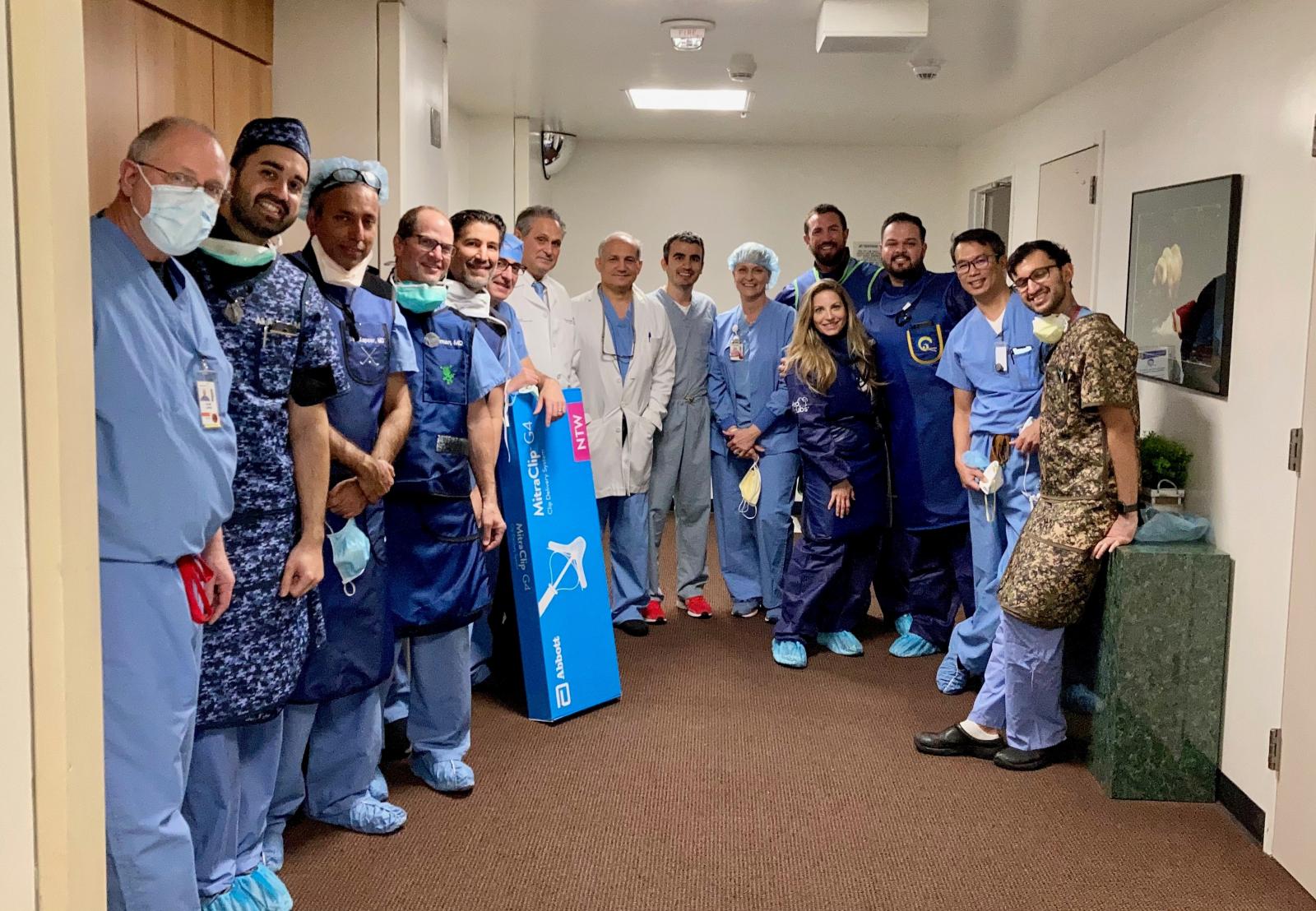 The MemorialCare Heart & Vascular Institute at Long Beach Medical Center has successfully performed the first of many procedures using MitraClip™ to treat mitral regurgitation. Mitral regurgitation occurs when a person has a loose mitral valve in their heart, causing the blood to flow backward, putting an extra strain on the heart. If left untreated, it can cause serious complications such as heart failure.
The MemorialCare Heart & Vascular Institute at Long Beach Medical Center has successfully performed the first of many procedures using MitraClip™ to treat mitral regurgitation. Mitral regurgitation occurs when a person has a loose mitral valve in their heart, causing the blood to flow backward, putting an extra strain on the heart. If left untreated, it can cause serious complications such as heart failure.
There are no other hospitals or physicians that offer this procedure in the greater Long Beach area.
In general, there are only a few select medical centers across the nation that offer this procedure, Due to the COVID-19 pandemic, we could not send any patients out of town to have this procedure done. Being able to provide it in Long Beach is a monumental leap forward for our community.
Nikhil Kapoor, M.D., cardiologist, MemorialCare Heart & Vascular Institute, Long Beach Medical Center
MitraClip is a non-surgical minimally invasive treatment option for mitral regurgitation. During this procedure, a doctor attaches a clip to the mitral valve closing it entirely, restoring normal blood flow throughout the heart. Most patients who undergo this procedure are considered too high-risk or unable to undergo traditional heart surgery.
Before a patient can get this procedure done, they must first be evaluated by the team at the Valve Clinic at the MemorialCare Heart & Vascular Institute at Long Beach Medical Center. David Shavelle, M.D., medical director, Adult Cardiology & Interventional Lab, MemorialCare Heart & Vascular Institute, Long Beach Medical Center and Marc Sakwa, M.D., chief, Cardiology Surgery, MemorialCare Heart & Vascular Institute, Long Beach Medical Center oversee the team involved in the procedures.
We offer a multi-disciplinary approach in comprehensive cardiovascular care. The Valve Clinic is comprised of cardiologists, imaging specialists and cardiothoracic surgeons who come together for shared decision-making. Everyone gets a chance to discuss and give their recommendations.
Dr. Shavelle
Patients who have undergone this procedure have seen a noticeable improvement in their symptoms almost immediately.
“All the patients we performed this procedure on recovered in a non-intensive care unit setting on a floor where we can monitor their vital signs remotely,” says Dr. Shavelle. “They are then able to check out the next day. Over a short period of time, patients have less shortness of breath, more energy and exercise capability and an overall improvement in their quality of life.”
The MemorialCare Heart & Vascular Institute at Long Beach Medical Center diagnoses cardiovascular disease using the most advanced and minimally invasive approaches. The Institute’s nationally recognized physicians and treatments aim to provide complete comprehensive cardiovascular care. Learn more at memorialcare.org/ComplexHeart.